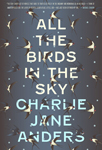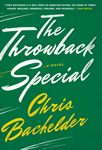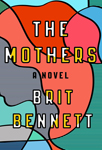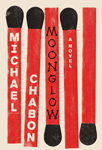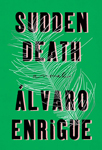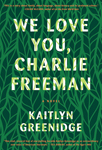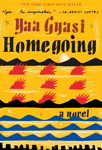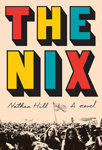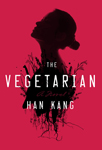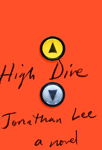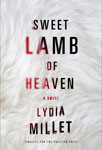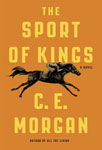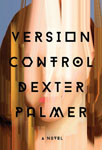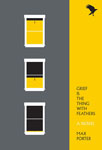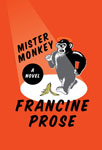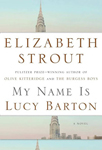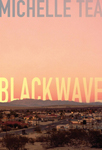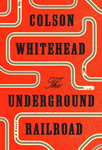by Charlie Jane Anders
Buy it at Powell’s »Pamela Ribon: Is it too late for me to vote for The Sellout?
Look, in its defense, Álvaro Enrigue’s Sudden Death is not the kind of book I would read. It’s mostly historical fiction, definitely about politics, and really (but not really) about tennis. In reviews it’s called “ambitious,” which to me translates as “difficult.” This experimental, postmodern novel zips around in time and place, proudly toying with the idea that the work is simultaneously about itself and nothing. “Maybe it’s just a book about how to write this book; maybe that’s what all books are about. A book with a lot of back-and-forth, like a game of tennis.” Oh, sure, OK. It’s a book about your book. Got it.
Sudden Death’s jacket copy describes it as “a daring, kaleidoscopic novel about the clash of empires and ideas.” It’s a story (kind of but not really) about fictional (?) tennis between actual people: the Italian painter Caravaggio and the Spanish poet Francisco de Quevedo. They play with a ball made from the hair of a freshly beheaded Anne Boleyn. Included in the novel is a frustrating amount of untranslated Italian, Spanish, and French, lengthy family histories, musings on the point of art, detailed imaginings of how very large paintings must have been hand-delivered, Mary Magdalene, Aztec emperors, the conquistador Cortés, and Thomas More’s Utopia. Ugh, look, I could keep trying to explain what it’s about (or not about) but it won’t be elegant (or maybe even right) because it’s about a lot of things that are big and sprawling and—
—look, yo, there is a lot of talk of balls and scrotums and cocks and the men who stroke them. There’s grappa and muscular asses and eager fucking and lazy morning handjobs. You can practically smell the semen thinly strung across individual dark hairs on a moist beard. There’s whores with hard, wet nipples who use sex for power. There is the phrase “the cunt of a sheep,” which entered my head, turned tangible, and affixed itself to the back of my throat as a viscous lump. I see my doctor for it on Thursday. It will be difficult to explain without becoming contagious.
I am well aware that I am not well-schooled enough to appreciate this novel. History is not my jam, and the bulk of my education was in Texas, where Spanish—and Mexican history in particular—is whitewashed whenever it isn’t just flat-out ignored. I didn’t have the background to know what was based in truth or the author’s fiction as I read, so I found myself continually googling and wikipedia-ing, fact-checking and backstory-ing, using translation sites like an eager, lost tourist. I desperately wanted to find a foothold on the narrative that would allow me to enjoy the ride. I even consulted someone who I knew would love this book once I gave it to him. “What can I do?” I asked. “I want not to feel so antagonistic toward this novel.”
“Maybe stop thinking so much,” he offered.
I sent him away.
But I couldn’t drop kick this book, as here I am in a tournament where I’m supposed to finish both novels, so I endured. And then Enrigue sets aside all we’ve read to get real for a second. Or maybe not. Maybe it’s more of the back and forth. But it felt like he decided to set me free.
I don’t know what this book is about. I know that as I wrote it I was angry because the bad guys always win. Maybe all books are written simply because in every game the bad guys have the advantage and that is too much to bear.
Now, isn’t that beautiful? And worth the struggle to find it. All is (kinda, but not really) forgiven, Enrigue.
Francine Prose’s Mister Monkey had many elements going for me from the start: theater people, found families, broken dreams, and second starts. It’s about the apathy that can come with success and the gnawing angst the lack of it creates. It had the added advantage of me reading it on an airplane, where I can fall in love with anything. Put me in coach armed with only a tiny plastic cup and an even tinier bottle of vodka and I’m pure emotion and open-hearted wonder, buckled in for just about any artistic endeavor. I cried over Drumline in 7B. Yes, a middle seat. It doesn’t matter. If I’m on a plane, I am ready to collapse into your heart.
OK, so Mister Monkey is a book about a beloved and banal children’s musical based on another book, starring a cheeky monkey, even though chimpanzees aren’t monkeys (they don’t have tails) (whatever, I’m just annoying) (but it’s true).
We start with Margot, an actress who is better than her demeaning role but past her prime, who longs for both romance and her days of Chekov. From there we swing through the chapters like monkeys (or chimps, who are not monkeys) each one about a different character, from the troubled boy inside the chimp costume to a doting grandfather of another boy in the audience, to the author of the book upon which the play is based, and so on. The device hit a rhythm that became episodic and predictable, especially when scenes from the musical repeat from different points of view. Every time we went back to the monkey in the middle, it felt like the book had to start itself over again.
It is the chapter belonging to the romantic waiter Mario that I found the most charming. He’s fallen for Margot, who does not know he exists. After a few failed attempts at introducing himself, he follows her to a restaurant, sits as far away from her as possible, and watches her eat as he tries to summon the courage to speak to her.
Excuse me for interrupting, Mario repeats in his mind, until it becomes a prayer that does the opposite of what prayer is supposed to do. Each time Mario says it, a sizzle of terror pins him to his seat. He is a middle-aged man, but he might as well be in junior high.
Mario has the slightest connection to the main players in the book, which is why in the end it’s both inevitable and satisfying that he’s the one who busts through and changes everything.
Ultimately Mister Monkey is a story of love and loss and being on the outskirts of your dreams. About achieving something that’s not quite what you wanted, yet frustratingly adjacent enough that all it does is illuminate your regrets.
So, which book do I send forward, the one I wrestled with like I was trying to win a trophy, or the one I breezed through without much of a thought? Sudden Death had me feeling completely stupid at times, whereas I usually felt a few steps ahead of Mister Monkey. Ultimately I went with the one I’d have someone else read, since someone else now has to read it. Mister Monkey isn’t perfect. I didn’t fall in love with anything or anyone even from my cushy, upgraded, first-class seat. But I appreciated what it was saying, and found myself thinking about the characters in the story days after I’d finished, as opposed to Sudden Death, where here I am having to google some Italian yet-a-fucking-gain in order to tell you what it was even a little bit (maybe) about.
But listen. I hope Sudden Death is a Zombie book. Someone smarter than me needs to explain why it’s much better than this chimp thing. I know it is, but I don’t know why! I welcome and encourage a revolution here. And again, is it really too late to vote for The Sellout?
Match Commentary
By Jeff Martin & Rosecrans Baldwin
For today’s commentary, we’re joined by Jeff Martin. We first met Jeff thanks to his literary organization, Booksmart Tulsa, which puts on all kinds of unexpectedly strange, fun literary events in the “Oil Capital of the World.” Jeff’s also a bookseller, part of the campaign to open a new indie store in Tulsa, Magic City Books. Next time you’re in Oklahoma, look up Jeff.
Rosecrans Baldwin: Jeff, can you introduce yourself?
Jeff Martin: Hi! I first came into the circle of the ToB as an author and editor, not long after the release of my book The Late American Novel, which I did with my friend C. Max Magee of The Millions.
In 2009 I started a literary organization called Booksmart Tulsa. We bring in 30 to 40 authors a year and strive to put on experiential events that break the mold of the standard “sit and sign” model, including an epic gig with Stephen King last summer. Upcoming guests include Colm Tóibín, Chuck Klosterman, Jonathan Safran Foer, and David Grann.
In 2015 we morphed Booksmart Tulsa into the nonprofit group the Tulsa Literary Coalition with the goal of opening a new independent bookstore here in Tulsa, Magic City Books. The store opens later this year in a historic renovated 1925 warehouse. Our advisory board for the TLC/MCB includes Ann Patchett, Salman Rushdie, Jonathan Franzen, Ayelet Waldman, Michael Chabon, and David Sedaris.
Rosecrans: So what did you think of today’s judgment—despite the fact that Judge Ribon couldn’t vote for Paul Beatty?
Jeff: What I enjoy most in Pamela’s judgment is the way she’s able to get her own voice and neurosis into the work. The best works of criticism in my mind are always ones that stand as a personal statement. Pamela is so funny and self-deprecating in her attempts to say she isn’t fully up to the task. We know that’s not true. In the end, our own interests and biases determine the outcome. Pamela knew early on that the Prose book would be a better fit for her. She was right.
Rosecrans: But how does it sit with you? Would you see yourself going in the same direction?
It’s an odd pair of books to read together, never mind be forced to compare. For example, how do you feel about books that, as Ribon noted regarding Sudden Death, demand a certain amount of specific knowledge to comprehend?
Personally I had a strongly positive experience with Sudden Death. (I haven’t had a chance to read Mister Monkey yet.) But it also fed me things I routinely order off the menu as a reader: fiction in translation; author interjection; baroque narration in a contemporary guise; multiple time periods; sensuality; an overall sense of weirdness and surprise and structural play; something different. For me it’s this year’s HHhH. But it’s not a very helpful book. It’s more a scrapbook than anything. And if you don’t know tennis, never mind court tennis, I’m not sure you’ll want to pick it up. Though if you do like tennis, it’s even more fun.
That reminds me, I had a Lyft driver recently who told me that he only reads textbooks, because other books just aren’t as informative. I don’t think he’d like Sudden Death.
Jeff: I feel that the judgment was refreshingly honest. Pamela’s ownership of her own subjective voice is exactly right for this. I think I would’ve gone the other direction but I can’t fault this in any way.
For books that need a special level of prep or knowledge before reading, I’m usually frustrated when I don’t realize it until halfway through. Maybe we need a disclaimer or note, “Please spend some time on Wikipedia studying _______ before proceeding.”
Rosecrans: So with what you do know about these books, did you see this one coming ahead of time?
Jeff: I’m only just now getting into both. But I will say that I’ve had trouble getting into Prose’s previous works of fiction. My gut says I might go in the exact opposite direction.
Rosecrans: Let’s talk about that for a second. You’ve been a Rooster judge before. What were the hardest parts of the job? How would you rate Judge Ribon’s decision-making?
Jeff: I never wanted to take the whole enterprise too seriously. I’m not Harold Bloom or James Wood. Nor do I have any desire to be. I judged the Zombie Round in 2014. That alone gave me some feeling of freedom. The book that came out victorious, Kate Atkinson’s Life After Life, has only grown in stature in my mental library while having a somewhat short-lived impact, if any. My losing book, Hanya Yanagihara’s The People in the Trees, led straight into her mega-hit (and ToB contender), A Little Life. So what the hell do I know?
Rosecrans: One knock against the ToB, with which I completely sympathize, is that it can be frustrating to see a judge base their decision on something that you, the reader, don’t find important. How do you feel about that? Did that make it easier or harder when you judged?
Jeff: I love it. Not having a set criteria means it’s the Wild West. You can’t really guess what’s going to happen next or which book may prevail. In that way, the Rooster captures the spontaneous nature of the actual March Madness.
Rosecrans: And maybe that means Álvaro Enrigue—who’s been writing novels and essays and stories for 20 years, but is only now getting English translation—should be considered the Northwestern of ToB? Which could be a good or bad thing, depending on how Northwestern does? (Oh, hi Gonzaga.) Anyway, what are you reading right now? Any titles you’re particularly excited about?
Jeff: I’m going back to some early Saunders before tackling Lincoln in the Bardo. I also just read Amie Barrodale’s debut collection You Are Having a Good Time. Great stuff.
Rosecrans: Before we sign off, as a bookseller and literary-business person, how do you feel about indie bookselling at the moment?
Jeff: I feel great. I feel more hopeful and excited than I ever thought I would feel again after the economic turndown of 2008-2009 and the shuttering of Borders and countless indies in the wake of the first-generation Kindle.
The news that comes nearly weekly about new stores and other startups has the feeling of something permanent and not just a niche reaction. Will the bookselling world ever be like it was in 1975? No. Is it dead? No. What we are seeing is the great middling out of a market. And the comeback, for lack of a better word, is really only just starting to impact the broader perception that bookstores and bookselling culture went the way of the dodo.
Rosecrans: That’s great to hear. So I’m going to turn the booth back over to John, to relay some additional info. But because I was in here today, I’ll be diving into the comments if anyone has any general questions about the ToB, or if people just want to talk about their favorite tennis novels.
John Warner: Thanks, Rosecrans, and special thanks to Jeff Martin for his terrific work, both today and in his ongoing efforts promoting literary culture in Tulsa. Good luck, brother!
Tomorrow we will open the quarterfinals as The Underground Railroad meets All the Birds in the Sky. Bim Adewunmi will take charge of the rooster-topped scepter all judges must hold as they render their verdict.
Today, however, we have a special duty to bring everyone up to date on the Zombie Round.
As longtime Rooster Boosters know, we continue the tourney until the field is pared down to two novels. Then, we resurrect a pair of books that had been previously eliminated, based on the results of a reader ballot that took place back in January. The two highest vote getters from among the books eliminated from the ToB will rise from the dead to take on our presumptive finalists.
These results could change as more novels get the boot, but if the Zombie Round were held today, our skin-eating special editions would be My Name Is Lucy Barton and The Vegetarian.
Sadly, this means we say goodbye for good to Black Wave, High Dive, Moonglow, The Sport of Kings, Sudden Death, Sweet Lamb of Heaven, The Throwback Special, and We Love You, Charlie Freeman.



